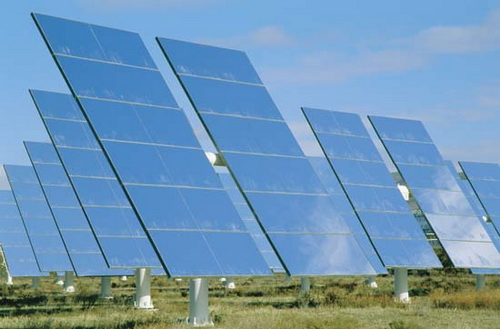
By Cosmos Nike NWEDU
While so many countries across the world, including some countries in Africa are decisively exploiting the potentials of modern alternative energy resources in a cost-effective way, Nigeria is inert with the predator of its economy. The fact that a country such as Nigeria whose economic backbone depends solemnly on fossil fuel, does not look back to take abreast of the most innovative trends in the global energy industry, correlates its unavoidable political maneuver of the sector.
To this end, fossil fuel has dominated its political and economic interests in every agenda, a situation so perilous. Such national attitude has rendered its supposed economic vibrancy redundant with fuel price shocks as the order of the day. This has paved a way for the highest level of corruption of political leaders who control the oil and gas sector whilst energy management and policy ineptitude in the country get worsen.
Renewable energy resource exploitation has become an innovative energy option for reaching not only many economic problems of a country but also, the needs of its citizens. A new industry focus, which is set to an increasing level that, would probably challenge investors in fossil fuel. Did I say in a short time? Absolutely, it is no longer a matter of short time, why? Because the need for concerted global effort to tackle unabating climate change effect posing health, economic, and social implications, has become more urgently than ever so as to avoid the catastrophe of climate variation happening across the globe now.
For this reason, a new platform for championing divestment from fossil fuel to alternative energy resources given its little or no associated environmental issues is accelerating without brake.
Carbon emission from fossil fuel is becoming most largely uncontrollably dangerous to the climate and human health. Investments in the industry are therefore, no longer safe as such do not form moral basis of our societal mutual co-existence. This is necessary considering the need to protect our present and future generations where sustainability and equity form the basis of our daily lives.
Many universities, colleges, organizations and corporations across the world are on a cause to drive divestment of fossil fuel to its last destination and some of these forerunners have had exemplary demonstration to this effect. For instance, according to the Guardian, UK, “University of Glasgow becomes the first university in Europe to divest its £18 million from the fossil fuel industry and was set to freeze new investments across its entire endowment fund of £128 million”. This was made possible through a campaign led by Glasgow University Climate Action Society and involved over 1,300 students, whereas “Syracuse University in April 2015, committed to divest its £800 million endowment and to re-invest by seeking new investments in clean energy technologies”.
The Guardian also reports that, “recently more than 800 global investors involving foundations like Rockefeller Brothers, faith institutions, local governments, universities and healthcare organizations have ardently pledged to withdraw a total of £31 billion from fossil fuel investments in the next 5 years”.
These are unequivocal developments across the world sending signal to investors that, there are lurking dangers in the fossil fuel industry. It is also a strong harbinger to countries depending on oil and gas for its economic survival such as Nigeria. Immediate lessons need be learnt from this trending in the industry without much ado, as it is pertinently better to look for hay while the sun shines.
The significance of the development of renewable energy resources does not only mean we are talking about energy access alone, we are as well talking about creation of job employment, bridging the gap between energy access of the citizens (energy poverty) at a more affordable cost, creating an economy of energy mix, attracting foreign investments, promoting a leaner and safer environment and sustainable pattern of economic development to the highest extent possible.
In terms of job creation for instance, and according to World Energy Outlook (WEO, 2014), “7.7 million jobs were generated from renewable energy across the world just in 2014 alone”. This is quite awesome and amazing. It is a strong encouragement to delve deep into this new industry.
Nigeria is currently having the highest number of populations without access to electricity in Africa. According to International Energy Agency, World Energy Outlook (IEA, WEO 2014), “93 million people in Nigeria do not access electricity with 115 million citizens relying on traditional biomass”. Energy poverty in Nigeria is not something to write home. It is regrettable that a country that is so propitious under a pileus of inexhaustible natural resources such as sun, biomass and many more do not think of how to create an alternative way of bridging this gap despite the level of energy poverty and unemployment in the country.
Nigeria should have a rethink and look at some of her neighboring countries that are currently utilizing the opportunities in renewable energy resources. For instance, Ghana is currently taking its share of renewable energy resources. It is no doubt that in the nearest future, Ghana will top in the list of one of the countries with the highest investments and generation of power from alternative energy. Presently, it is having about a total of 1.0 MW installed solar photovoltaic. In fact, the figure below shows an analysis of investment and generation of power from biogas in Ghana.

In the same spirit of renewable energy investments, a country like Kenya is also capitalizing heavily on renewable energy resources.
According to UNEP’s 9th “Global Trends in Renewable Energy Investment 2015” Kenya is one of the top ten countries in which over $1 billion dollar has been invested in renewable energy resources recently. The government of Kenya has a very wide ambitious plan to tap into its available renewable resources. In fact, Kenya has distant itself from many other African countries that are still paying deaf ears to alternative energy exploitation like Nigeria.
What lesson can this be to Nigeria? Obviously, it is a big lesson worth learning. An investment decision that would spur economic growth and create opportunities at various levels for human empowerment, whilst providing a cost-effective and equally accessible electricity to its citizens.
With the axiom “better late than never”, Nigeria can still position itself strategically to gain from abundant renewable resources sprawling untapped in the country. There are considerable biomass and solar resources in Nigeria. The country has been identified to lie variously at places with potential wind energy resources. For instance, Oluseyi, et al. (2013) and, many other researchers, have studied and identified some states such as Cross River, Lagos states and Kano in the far northern region with many other surveyed sites straddling some geopolitical zones in the country as possessing exploitable wind resource.
One question deserves a place in this article. It is a question that keeps me awake. As it is necessarily unavoidable, this question is worth answering by any reasonable man. Thus the question, if the Americas and many European countries whose sunniest days are like the most rainy days in Africa can exploit the potential of solar energy, why not we, Africans? Absolutely, we can quadruple ours.
Nigeria should think out of box now and devise strategically to utilize the opportunities in renewable energy development.
Our leaders especially those entrusted with policy making that affects our energy and electricity sectors should pause to think if they are still performing their entrusted roles. Exploitation of renewable resources in the country will prove invaluable to its economic growth and the well being of its citizenry.
It would create not only local investment opportunities but also, foreign investments. The road to alternative energy development in the country will in the same degree, create a leeway to job creation and a bridge of the increasing gap in access to energy mainly suffered by the working class and those that even fall out of this classification chiefly the doomed rural dwellers.
Taking this economic pathway will help Nigeria follow its track for the global affairs like making effort to fight climate change while in the same spirit resolving issues that bother on sustainable development goals.









